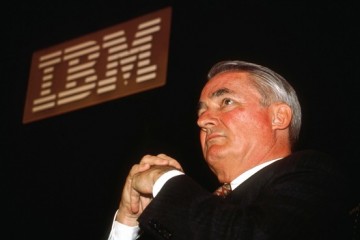 While CIOs tend to think “Red Hat” when they contemplate their open source navels, their developers are not big fans and more likely to love Ubuntu, according to research.
While CIOs tend to think “Red Hat” when they contemplate their open source navels, their developers are not big fans and more likely to love Ubuntu, according to research.
According to AngelList data compiled by Leo Polovets, these developers also like MySQL, MongoDB, or PostgreSQL for their database; Chef or Puppet for configuration; and ElasticSearch or Solr for search.
None of this technology is developed by Red Hat which means that if the Open Source giant does not pull finger, it may find itself without applications.
The same thing is happening on the cloud. Ubuntu claims more than 50 percent of all guest OSes. Across Red Hat’s complete product range (RHEL, CentOS, and Fedora), the company gets less than 20 percent of all guest OSes.
Where Red Hat has been doing some Stirling work with the open source developer community, on OpenStack Red Hat has a better 34 percent adoption rate.
Red Hat is doing well in its middleware business, JBoss and storage business based around Gluster, Ceph.
But it has missed out on nearly all of the biggest projects, from Hadoop to ElasticSearch to Cassandra and Red Hat also lacks meaningful partnerships with most of them.
The reports suggests that Red Hat needs developers and it could be in big trouble unless it does.



















